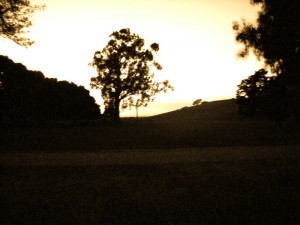A few days ago, I visited Elkhorn Slough National Estuarine Research Reserve. I stopped at the visitor center to purchase a day use pass. The ranger who sold me the pass asked me to stop on my way into the reserve to bush off my shoes and dip them into a disinfectant bath. Seeing my surprised look, she said, “It’s to help control Sudden Oak Death Syndrome. You should do that whenever you go walking where there might be oaks. I know, it seems pointless, but I’m the kind of person who would still wash her hands during a cholera epidemic.”
When I was walking around the reserve, I didn’t even think about Sudden Oak Death Syndrome, although I did admire the many live oaks, with their long convoluted branches arching over the surrounding ground. Human beings are really good at ignoring and forgetting the huge problems which loom before us. I suspect this is the origin of apocalyptic literature, which is designed to force us into facing up to really big problems that are completely beyond our control: the book of Revelation was designed, with its striking and hallucinatory images, to get its original readers to face up to the overwhelming power and evil of the dominant Roman Empire. Apocalyptic literature is also designed to help us feel as though we can make meaningful moral judgments about overwhelming problems, and it is designed to give us hope that somehow things will turn out well, albeit in ways that we really can’t comprehend right now.
We still have political debate, writing, and other art forms cast in the apocalyptic genre today. Al Gore’s film “An Inconvenient Truth” may be one example; and certainly some of the debate within the environmental movement tends towards the apocalyptic direction. Some of the debate about immigration into the United States and European countries vaguely resembles the apocalyptic genre, down to dire warnings and sometimes surreal logic. There is nothing wrong with apocalyptic literature — it can provide some needed comfort and hope — as long as we recognize that it is really a type of fiction or myth. You still have to wash your hands during the cholera epidemic, you probably should disinfect your shoes before walking among oaks, and when you get done reading an apocalypse you still have to deal with reality.

